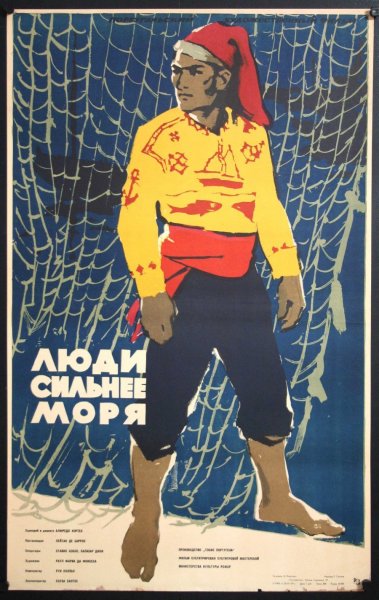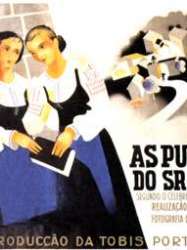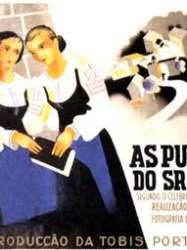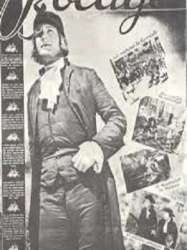Ala-Arriba! is a film of genre Drama directed by José Leitão de Barros
Ala-Arriba! (1942)

If you like this film, let us know!
Ala-Arriba! is a 1942 Portuguese romantic docufiction set in Póvoa de Varzim, a traditional Portuguese fishing town.
Dealing with ethnographic matters, it may be considered as an ethnofiction. The film was directed by Leitão de Barros, and stars real fishermen as themselves in order to give a realistic view over traditions and social behaviours of the community. Focusing the cultural context, it continuously shifts from documentary to drama, by means of a fictional narrative. Contemporary to Robert Flaherty, Barros is with him one of the first filmmakers to explore docufiction and ethnofiction as forms of dramatic narrative.
It premiered at São Luis Theatre in Lisbon.
Synopsis
It focuses on maritime tragedy of the town and a forbidden love between Julha (Elsa Bela-Flor) and João Moço (Domingos Gonçalves), from different fisher castes, in a community where mixed-caste marriages were not allowed and dating without parent's assent was seen as a disgrace to the family, not only in respect to women, but also men.Comments
Leave comment :
Suggestions of similar film to Ala-Arriba!
There are 10 films with the same director, 68191 with the same cinematographic genres (including 13416 with exactly the same 2 genres than Ala-Arriba!), to have finally 70 suggestions of similar films.If you liked Ala-Arriba!, you will probably like those similar films :

As Pupilas do Senhor Reitor (1935)
, 1h42Directed by José Leitão de Barros
Origin Portugal
Genres Drama, Romance
Actors Maria Matos, António Silva
Rating61%






As Pupilas do Senhor Reitor (1935)
, 1h42Directed by José Leitão de Barros
Origin Portugal
Genres Drama, Romance
Actors Maria Matos, António Silva
Rating61%






Maria of the Sea (1930)
Directed by José Leitão de Barros
Origin Portugal
Genres Drama, Documentary, Romance
Rating66%






Inês de Castro (1944)
, 1h50Directed by José Leitão de Barros
Origin Espagne
Genres Drama, Historical, Romance
Actors Antonio Vilar, María Dolores Pradera, Antonio Casas
Rating63%





Dans le royaume du Portugal, au XIV siècle, Pierre (Dom Pedro), fils du roi Alphonse IV (Afonso IV), doit épouser pour des raisons diplomatiques la princesse castillane Constance (Constança) et finit par tomber amoureux d'Inès (Inês), amie de sa femme. Lorsque cette dernière meurt, les deux amants peuvent officialiser leur amour ; mais le roi considère cette union inopportune et fait assassiner Inès, suscitant la colère de Pierre qui décide de prendre les armes contre son père...

A Severa (1931)
, 1h50Directed by José Leitão de Barros
Origin Portugal
Genres Drama, Biography
Rating56%






Maria Papoila (1937)
, 1h38Directed by José Leitão de Barros
Origin Portugal
Genres Comedy, Romance
Actors António Silva
Rating64%






Camões (1946)
, 1h58Directed by José Leitão de Barros
Origin Portugal
Genres Drama, Biography, Historical
Actors Antonio Vilar, Eunice Muñoz, Leonor Maia, António Silva
Rating62%





 Connection
Connection


